2012.09.30 CoStone Capital Views:
The fourth CoStone Capital Management Forum and the Launch Ceremony of the Wuhu Navigation CoStone Fund commenced on September 15. The Wuhu Navigation CoStone Fund, with a scale of over ¥600m (approx. $91.8m), is the tenth fund launched by CoStone Capital and invests in the growing SMEs. This forum focuses on the topics concerned by entrepreneurs and the investment industry, such as the macro economy, the micromanagement of enterprises and social science.
The fourth CoStone Capital Management Forum and the Launch Ceremony of the Wuhu Navigation CoStone Fund commenced on September 15. The Wuhu Navigation CoStone Fund, with a scale of over ¥600m (approx. $91.8m), is the tenth fund launched by CoStone Capital and invests in the growing SMEs. This forum focuses on the topics concerned by entrepreneurs and the investment industry, such as the macro economy, the micromanagement of enterprises and social science.
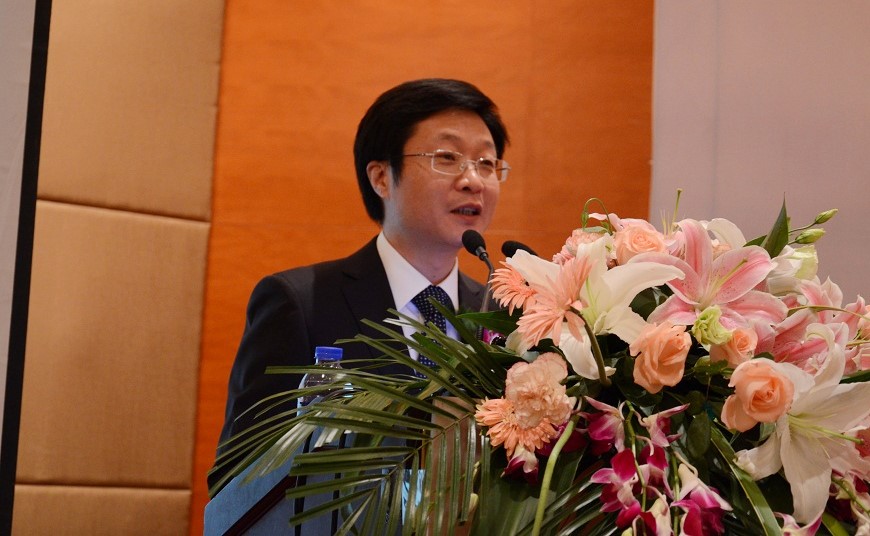
Pan Chaohui, Deputy Secretary of the Wuhu CPC Party Committee, making a speech
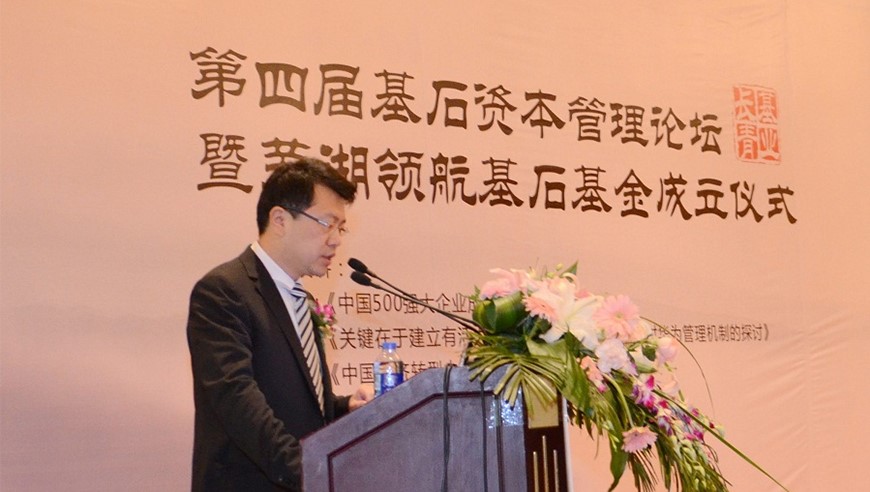
Lin Ling, CoStone Capital Partner and Manager of the Navigation CoStone Fund, introducing the fund
The launch of the Wuhu Navigation CoStone Fund was welcome among investors, although many of them were gloomy about the investment environment. Chairman Zhan Wei expressed his optimism about the environment at the fund's launch ceremony. Most of the projects that have brought high returns to CoStone Capital were invested when the macro economy was predicted to be weak and there was a decline in the capital market, said Zhang Wei.

Ha Jiming making a speech
Ha Jiming, an economist and Managing Director of Goldman Sachs Asia, corroborated Zhang Wei's opinion at the CoStone Capital Management Forum on September 15. From his analysis of the global economic trend, the upgrading of the consumption structure, the economic transformation and the aging population will fuel emerging industries in the long run. Furthermore, the valuation of the stock market is expected to go up in the fourth quarter because of an improving political environment.
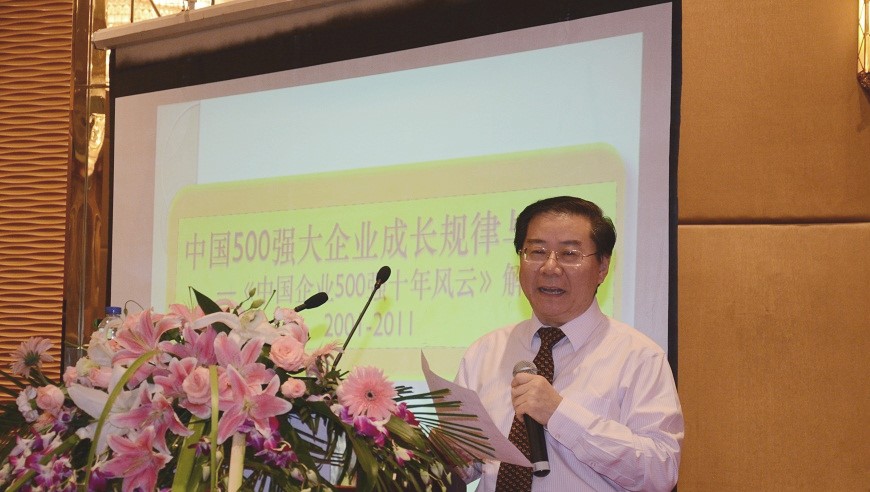
Prof. Yang Du on the Growth and Model of China's Top 500 Enterprises
Professor Yang Du at Renmin University of China lectured on the "Growth and Model of China's Top 500 Enterprises". The topic was illustrated with credible charts and figures in a critical way.
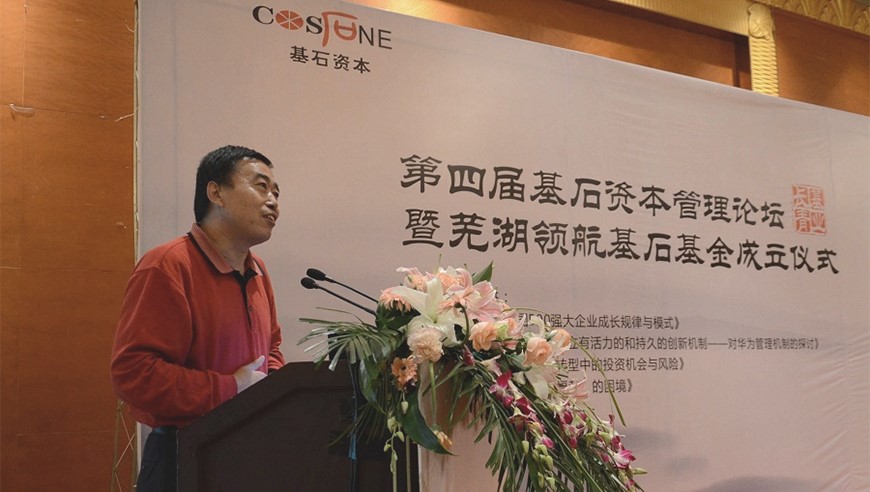
Prof. Wu Chunbo on Huawei's Culture
Professor Wu Chunbo enjoys a high reputation for his study on Huwwei's culture. As he introduced, the core of Huawei's management consists of three aspects: a performance-oriented corporate culture, a customer-oriented macro business model, and a process-oriented operation mode. Putting customers at the center is the basic culture of Huawei and the most sustainable mode of development, Prof. Wu finally added.
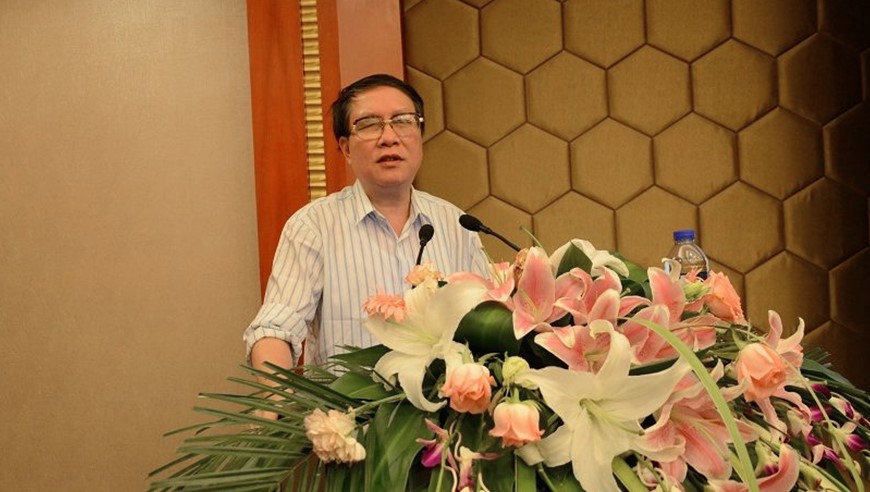
Prof. Qin Hui on Social Management
Professor Qin Hui at Tsinghua University discussed how to get out of the trap of "Negative Welfare" in his speech. He reckoned that the negative welfare problem in China is caused by "robbing the poor to feed the rich". To solve the problem, the system must be reformed. He stressed that welfare must be deemed as the citizens' right and the government's responsibility, and that the accountability system for the government should be strengthened.
Speaker
Dr. Ha Jiling
Dr. Ha Jiming is Vice Chairman and Chief Investment Strategist of the Investment Strategy Group within the Investment Management Division of Goldman Sachs Asia, focusing on macroeconomic research in China. He joined Goldman Sachs in Investment Banking Services as a managing director in 2010. Prior to joining Goldman Sachs, Dr. Ha was Chief Economist at China International Capital Corporation from 2004 to 2010. Before that, he was a senior economist at the International Monetary Fund from 1993 to 2004. He worked at the Hong Kong Monetary Authority within the IMF from 2001 to 2003 and served as the IMF resident representative to Indonesia from 1999 to 2001.
Prof. Yang Du
Yang Du is Professor and PhD Supervisor at Renmin Business School. He earned his PhD in Economics from Renmin University of China (RUC) and another PhD in Business Administration from Kobe University. He did his post-doctoral work in Management at RUC and has been teaching there since 1994. He served as Director of the Department of Business Management, Director of the Department of Theories of Management, and Director of the Department of Organization and Human Resources. His research studies the firm growing theory, knowledge management, corporate culture and enterprise ethics.
Prof. Wu Chunbo
Prof. Wu Chunbo is a leading expert at China Stone Management Consulting Group, and Professor and PhD supervisor at RUC. He also served as Dean of the Institute of Organization and Human Resources, School of Public Administration, RUC. He has published over 100 articles in journals at home and abroad and translated more than 10 foreign works. His representative works include Grasp the Future: The Planning of Modern Business Operation, Organization Design and Operation, A Course of Cases in Human Resource Management and Get out of Chaos. Prof. Wu provided design and consulting services of HR management for a dozen Chinses enterprises and organizations. As one of the drafters of the Huawei Basic Law, he has been serving as a senior corporate management advisor to Huawei since 1995.
Prof. Qin Hui
Qin Hui, a historian and economist, is Professor at the Chinese University of Hong Kong. Graduating from Lanzhou University in 1981, he is now a visiting research fellow at the Fairbank Center for Chinese Studies, Harvard University, a visiting scholar at the Harvard-Yenching Institute, Member of the Council of the China Economic History Society, and a special research fellow at the Unirule Institute of Economics. Prof. Qin used to teach history at the Department of Human and Social Sciences, Tsinghua University. His main research interests are economic history and Chinese agrarian history, with the representative work of Modernization Beyond Government and Enterprise: A Comparative Study on the History of Chinese and Western Public Welfare.
Rewritten by Jiang Xiaomei, Edited by Li Yunzhen, Du Zhixin, Wei Yiyi
The year 2019 marks the fortieth anniversary of China’s Reform &Opening-Up, once again, we meet at the turning point of history. What’s the next step for the game, is there any clear guidance? The answer is affirmative.
Our country is enjoying a good momentum of development, which does not come from the Washington Consensus nor the Beijing Consensus. China’s experience has proved that both the visible hand and the invisible hand are crucial: the visible hand, stands for the government-led reform, and would yield benefits for reform and opening up; the invisible hand, stands for the Marginal Power represented by the private sector, and would improve economic efficiency and tax collection, create jobs and employment opportunities.
Provided that we want to protect and expand the benefits form reform, three simple but mandatory agreements are to be made and followed: No.1 Private ownership must be recognized, protected and treated equally with public ownership constitutionally, both ownerships are scared and inviolable;No.2 Make further clarification of the principal position of market economy, “deepen economic system reform by centering on the decisive role of the market in allocating resources”, as President Xi addressed in the third Plenary Session of the 18th CPC Central Committee;No.3 Implement the guiding principles of “comprehensively promoting law-based governance” of the fourth plenum. The rule of law is essential for economic growth, irreplaceable to protect private ownership, and necessary to encourage innovation and entrepreneurship.
Above are three rules for us to avoid falling into the Middle-income Trap. Assuming that we are breaking systematic barriers to private enterprises’ participation in market economy, and boosting innovation and entrepreneurship of our society, then we are heading towards a promoting direction. We are marching in the path of light, regardless of the ups and downs of Sino-US relationship, the drop in GDP growth rate, or the monetary policy.
These principals also apply on knowing how better to run a business: don’t be hedged by rules and regulations at the beginning, pay more attention to your survival, and you’ll learn more when you start your second business.
For many years, Huawei has been the only Chinese company on the list of the Top 50 R&D Spenders. Regardless of the economy and its income, what Huawei has been doing is investing in its future, dedicated to R&D, continuously and resolutely. This provisional work underscores Huawei’s accomplishments, making Huawei anindustry leader.
So, there are standard answers on how to run a company,which could be summarized as concentration and professional dedication, continuous investment on innovation and trying harder in R&D. Entrepreneurship is also important, every single company needs entrepreneurs to push aside all obstacles and difficulties, to implement strategies and ideas. We, as investors, are destined to look for such outstanding entrepreneurs and their companies, invest in them and partner with them.
At this key point of history, a country, a company, or asingle individual, will all need to find the right path. Four decades after the Reform and Opening-up, it’s time to learn from our experience and stop “wadding across
